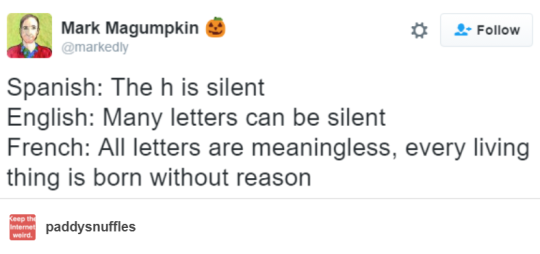Anime and manga enjoyer, fan fiction writer, and cosplayer currently obsessed with Kamisama Kiss and reading fanfics by @intoevernight
Don't wanna be here? Send us removal request.
Text
Important! Your pet's RFID chip number might have been disconnected this week.
Is your pet chipped? They should be. Do you know who made the chip?
Pet RFID chips are so small that there's really only room on them for a serial number. When your lost pet is brought to a shelter or a vet's office, they can scan the chip, read that number, and then type it into a program that draws from a series of linked databases to find your name and phone number. That's how they find you, and tell you that Silly Lilly von Wigglesbottom has gone wandering, and she's safe and sound, and would you come get her, please?
Texas-based Save This Life, which provided chips to vets and shelters all across the US, has all at once and abruptly gone dark; their database is just gone. Their customers were not given warning and so did not know to change their registration to another company. A lot of animals have basically become anonymous now.
If you don't know what company you've been using, call your vet's office and ask what pet chip number they have on file. If the chip number starts with 991 or 900164, it's probably a Save This Life chip.
If it turns out yours is one of the affected cases, the chip itself will still be fine! There's no need to add another, or anything like that. You'll just need to transfer the number to another company, and your vet should be able to recommend the one that they like the best.
17K notes
·
View notes
Text
nimble, a border collie-papillon mix, wins the 12” class in the 2024 masters agility championship. the first time a mixed breed has won at westminster ever.
113K notes
·
View notes
Text
Lawmakers on both sides of the aisle are feeling the wrath of constituents as their phone lines light up with complaints, worries and confusion over Elon Musk's efforts to gut government programs and fire longtime civil servants.

15K notes
·
View notes
Text
Can't Have Nice Things
The Ketamine King Musk has shutdown the IRS's Free Tax Filing system.
Of all the things a government could off, a way to Freely calculate and file your taxes seems like a good one. But the richest man in the world thinks we shouldn't have that.
29K notes
·
View notes
Text
48K notes
·
View notes
Text
This song has single-handedly taken over my life and it’s only been like a week
7K notes
·
View notes
Text
The article is under the cut because paywalls suck
This is an edited transcript of an audio essay on “The Ezra Klein Show.” You can listen to the conversation by following or subscribing to the show on the NYT Audio App, Apple, Spotify, Amazon Music, YouTube, iHeartRadio or wherever you get your podcasts.
If you want to understand the first few weeks of the second Trump administration, you should listen to what Steve Bannon told PBS’s “Frontline” in 2019:
Steve Bannon: The opposition party is the media. And the media can only, because they’re dumb and they’re lazy, they can only focus on one thing at a time. … All we have to do is flood the zone. Every day we hit them with three things. They’ll bite on one, and we’ll get all of our stuff done. Bang, bang, bang. These guys will never — will never be able to recover. But we’ve got to start with muzzle velocity. So it’s got to start, and it’s got to hammer, and it’s got to — Michael Kirk: What was the word? Bannon: Muzzle velocity.
Muzzle velocity. Bannon’s insight here is real. Focus is the fundamental substance of democracy. It is particularly the substance of opposition. People largely learn of what the government is doing through the media — be it mainstream media or social media. If you overwhelm the media — if you give it too many places it needs to look, all at once, if you keep it moving from one thing to the next — no coherent opposition can emerge. It is hard to even think coherently.
Donald Trump’s first two weeks in the White House have followed Bannon’s strategy like a script. The flood is the point. The overwhelm is the point. The message wasn’t in any one executive order or announcement. It was in the cumulative effect of all of them. The sense that this is Trump’s country now. This is his government now. It follows his will. It does what he wants. If Trump tells the state to stop spending money, the money stops. If he says that birthright citizenship is over, it’s over.
Or so he wants you to think. In Trump’s first term, we were told: Don’t normalize him. In his second, the task is different: Don’t believe him.
Trump knows the power of marketing. If you make people believe something is true, you make it likelier that it becomes true. Trump clawed his way back to great wealth by playing a fearsome billionaire on TV; he remade himself as a winner by refusing to admit he had ever lost. The American presidency is a limited office. But Trump has never wanted to be president, at least not as defined in Article II of the U.S. Constitution. He has always wanted to be king. His plan this time is to first play king on TV. If we believe he is already king, we will be likelier to let him govern as a king.
Don’t believe him. Trump has real powers — but they are the powers of the presidency. The pardon power is vast and unrestricted, and so he could pardon the Jan. 6 rioters. Federal security protection is under the discretion of the executive branch, and so he could remove it from Anthony Fauci and Mike Pompeo and John Bolton and Mark Milley and even Brian Hook, a largely unknown former State Department official under threat from Iran who donated time to Trump’s transition team. It was an act of astonishing cruelty and callousness from a man who nearly died by an assassin’s bullet — as much as anything ever has been, this, to me, was an X-ray of the smallness of Trump’s soul — but it was an act that was within his power.
But the president cannot rewrite the Constitution. Within days, the birthright citizenship order was frozen by a judge — a Reagan appointee — who told Trump’s lawyers, “I have difficulty understanding how a member of the bar would state unequivocally that this is a constitutional order. It just boggles my mind.” A judge froze the spending freeze before it was even scheduled to go into effect, and shortly thereafter, the Trump administration rescinded the order, in part to avoid the court case.
What Bannon wanted — what the Trump administration wants — is to keep everything moving fast. Muzzle velocity, remember. If you’re always consumed by the next outrage, you can’t look closely at the last one. The impression of Trump’s power remains; the fact that he keeps stepping on rakes is missed. The projection of strength obscures the reality of weakness. Don’t believe him.
You could see this a few ways: Is Trump playing a part, making a bet or triggering a crisis? Those are the options. I am not certain he knows the answer. Trump has always been an improviser. But if you take it as calculated, here is the calculation: Perhaps this Supreme Court, stocked with his appointees, gives him powers no peacetime president has ever possessed. Perhaps all of this becomes legal now that he has asserted its legality. It is not impossible to imagine that bet paying off.
But Trump’s odds are bad. So what if the bet fails and his arrogations of power are soundly rejected by the courts? Then comes the question of constitutional crisis: Does he ignore the court’s ruling? To do that would be to attempt a coup. I wonder if they have the stomach for it. The withdrawal of the Office of Management and Budget’s order to freeze spending suggests they don’t. Bravado aside, Trump’s political capital is thin. Both in his first and second terms, he has entered office with approval ratings below that of any president in the modern era. Gallup has Trump’s approval rating at 47 percent — about 10 points beneath Joe Biden’s in January 2021.
There is a reason Trump is doing all of this through executive orders rather than submitting these same directives as legislation to pass through Congress. A more powerful executive could persuade Congress to eliminate the spending he opposes or reform the civil service to give himself the powers of hiring and firing that he seeks. To write these changes into legislation would make them more durable and allow him to argue their merits in a more strategic way. Even if Trump’s aim is to bring the civil service to heel — to rid it of his opponents and turn it to his own ends — he would be better off arguing that he is simply trying to bring the high-performance management culture of Silicon Valley to the federal government. You never want a power grab to look like a power grab.
But Republicans have a three-seat edge in the House and a 53-seat majority in the Senate. Trump has done nothing to reach out to Democrats. If Trump tried to pass this agenda as legislation, it would most likely fail in the House, and it would certainly die before the filibuster in the Senate. And that would make Trump look weak. Trump does not want to look weak. He remembers John McCain humiliating him in his first term by casting the deciding vote against Obamacare repeal.
That is the tension at the heart of Trump’s whole strategy: Trump is acting like a king because he is too weak to govern like a president. He is trying to substitute perception for reality. He is hoping that perception then becomes reality. That can only happen if we believe him.
The flurry of activity is meant to suggest the existence of a plan. The Trump team wants it known that they’re ready this time. They will control events rather than be controlled by them. The closer you look, the less true that seems. They are scrambling and flailing already. They are leaking against one another already. We’ve learned, already, that the O.M.B. directive was drafted, reportedly, without the input or oversight of key Trump officials — “it didn’t go through the proper approval process,” an administration official told The Washington Post. For this to be the process and product of a signature initiative in the second week of a president’s second term is embarrassing.
But it’s not just the O.M.B. directive. The Trump administration is waging an immediate war on the bureaucracy, trying to replace the “deep state” it believes hampered it in the first term. A big part of this project seems to have been outsourced to Elon Musk, who is bringing the tactics he used at Twitter to the federal government. He has longtime aides at the Office of Personnel Management, and the email sent to nearly all federal employees even reused the subject line of the email he sent to Twitter employees: “Fork in the Road.” Musk wants you to know it was him.
The email offers millions of civil servants a backdoor buyout: Agree to resign and in theory, at least, you can collect your paycheck and benefits until the end of September without doing any work. The Department of Government Efficiency account on X described it this way: “Take the vacation you always wanted, or just watch movies and chill, while receiving your full government pay and benefits.” The Washington Post reported that the email “blindsided” many in the Trump administration who would normally have consulted on a notice like that.
I suspect Musk thinks of the federal work force as a huge mass of woke ideologues. But most federal workers have very little to do with politics. About 16 percent of the federal work force is in health care. These are, for instance, nurses and doctors who work for the Veterans Affairs department. How many of them does Musk want to lose? What plans does the V.A. have for attracting and training their replacements? How quickly can he do it?
The Social Security Administration has more than 59,000 employees. Does Musk know which ones are essential to operations and unusually difficult to replace? One likely outcome of this scheme is that a lot of talented people who work in nonpolitical jobs and could make more elsewhere take the lengthy vacation and leave government services in tatters. Twitter worked poorly after Musk’s takeover, with more frequent outages and bugs, but its outages are not a national scandal. When V.A. health care degrades, it is. To have sprung this attack on the civil service so loudly and publicly and brazenly is to be assured of the blame if anything goes wrong.
What Trump wants you to see in all this activity is command. What is really in all this activity is chaos. They do not have some secret reservoir of focus and attention the rest of us do not. They have convinced themselves that speed and force is a strategy unto itself — that it is, in a sense, a replacement for a real strategy. Don’t believe them.
I had a conversation a couple months ago with someone who knows how the federal government works about as well as anyone alive. I asked him what would worry him most if he saw Trump doing it. What he told me is that he would worry most if Trump went slowly. If he began his term by doing things that made him more popular and made his opposition weaker and more confused. If he tried to build strength for the midterms while slowly expanding his powers and chipping away at the deep state where it was weakest.
But he didn’t. And so the opposition to Trump, which seemed so listless after the election, is beginning to rouse itself.
There is a subreddit for federal employees where one of the top posts reads: “This non ‘buyout’ really seems to have backfired. I’ll be honest, before that email went out, I was looking for any way to get out of this fresh hell. But now I am fired up to make these goons as frustrated as possible.” As I write this, it’s been upvoted more than 39,000 times and civil servant after civil servant is echoing the initial sentiment.
In Iowa this week, Democrats flipped a State Senate seat in a district that Trump won easily in 2024. The attempted spending freeze gave Democrats their voice back, as they zeroed in on the popular programs Trump had imperiled. Trump isn’t building support; he’s losing it. Trump isn’t fracturing his opposition; he’s uniting it.
This is the weakness of the strategy that Bannon proposed and Trump is following. It is a strategy that forces you into overreach. To keep the zone flooded, you have to keep acting, keep moving, keep creating new cycles of outrage or fear. You overwhelm yourself. And there’s only so much you can do through executive orders. Soon enough, you have to go beyond what you can actually do. And when you do that, you either trigger a constitutional crisis or you reveal your own weakness.
Trump may not see his own fork in the road coming. He may believe he has the power he is claiming. That would be a mistake on his part — a self-deception that could doom his presidency. But the real threat is if he persuades the rest of us to believe he has power he does not have.
The first two weeks of Trump’s presidency have not shown his strength. He is trying to overwhelm you. He is trying to keep you off-balance. He is trying to persuade you of something that isn’t true. Don’t believe him.
You can listen to this conversation by following “The Ezra Klein Show” on NYT Audio App, Apple, Spotify, Amazon Music, YouTube, iHeartRadio or wherever you get your podcasts. View a list of book recommendations from our guests here.
25K notes
·
View notes
Text
So, brief civics lesson, guys.
The power of the purse is Congress’s power to choose how the government spends its money. The president is supposed to spend money in accordance with Congress’s directives. The president does not have the right to refuse to spend money on the things Congress says he will.
This is one of the most basic, important powers of Congress, explicitly spelled out in the U.S. Constitution as a power reserved for Congress and Congress alone. It’s one of the main checks on the executive branch.
Trump’s freeze on federal grants is explicitly unconstitutional and illegal, and is an unabashed attempt to seize the power of the purse for himself, which would grant the US president an unparalleled amount of power over the U.S. government.
7K notes
·
View notes
Text
As of Jan 21st, 2025, a full copy of the constitution is no longer available on whitehouse.gov. I feel like this is a good time to remind everyone that the biggest threat to authoritarianism and facism is a well educated and informed population. Inform yourself and fight.
a copy of the document can still be found on the archives website. I think now is probably a good time to read it if you haven't and download it, incase it is erased from here as well.
https://constitutioncenter.org/media/files/constitution.pdf
20K notes
·
View notes
Text
Spoke to a gen z person the other night and apparently the young folks don't know about the very legal sites from which you can access public domain media (including Dracula, The Strange Case of Dr. Jekyll and Mr. Hyde, and other Victorian gothic horror stories)?
Like this young person didn't even know about goddamn Gutenberg which is a SHAME. I linked to it and they went "aw yiss time to do a theft" and I was like "I mean yo ho ho and all that, sure, but. you know gutenberg is entirely legal, right?"
Anyway I'm gonna put this in a few Choice Tags (sorry dracula fans I DID mention it though so it's fair game) and then put some Cool Links in a reblog so this post will still show UP in said tags lmao.
117K notes
·
View notes














